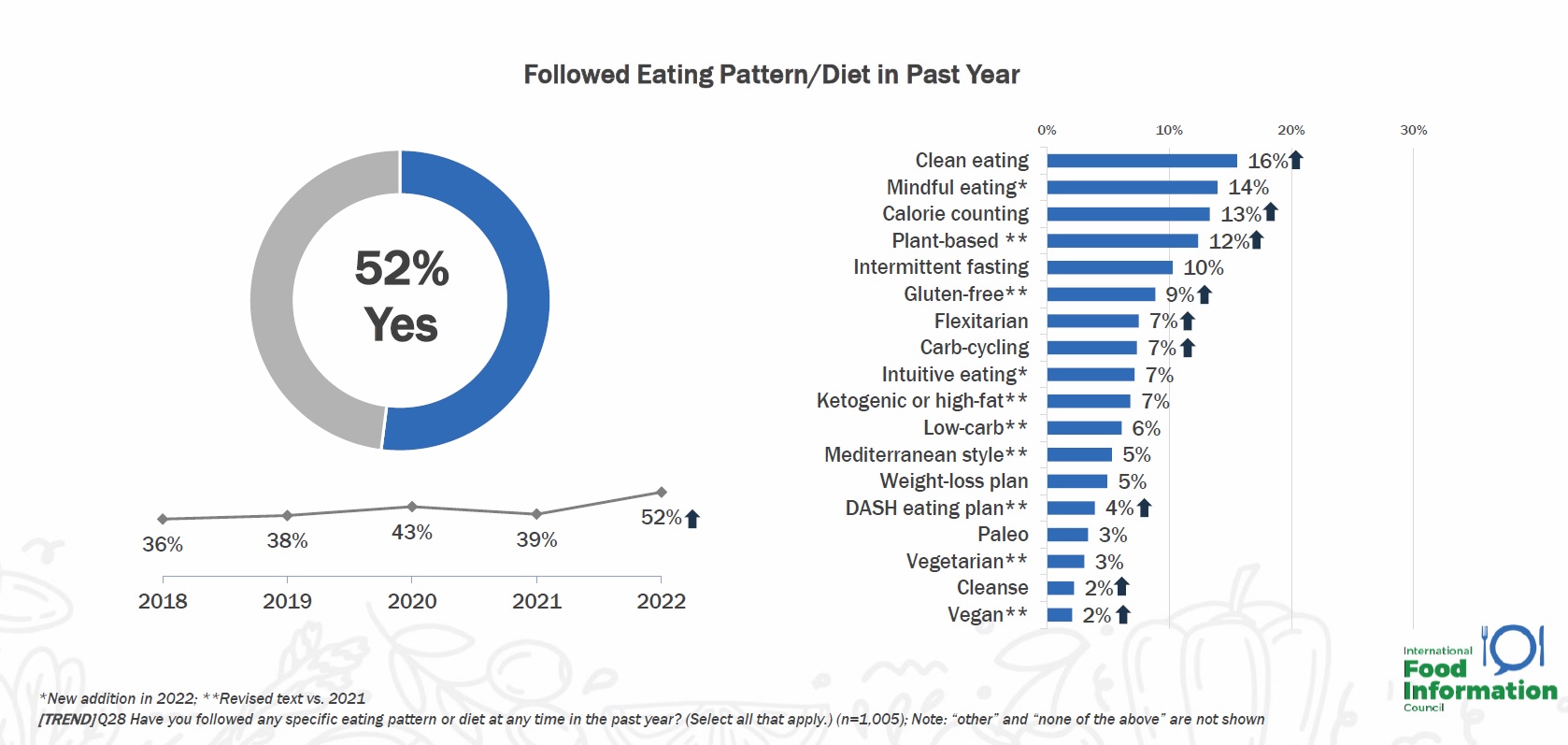
A Suggestion That Diets for the Environment Are Rising
It’s always interesting to see what surfaces in the annual Food Insight survey on food and health. The latest edition came out yesterday. For years now, the whole idea of following diets has been at a low ebb. Diets were supposed to be dead and buried years ago. Anti-diet dietitians are still dancing on that grave. But this year, we see a spike in people saying they’re following diets and their awareness of the effect of their diets on the environment is rising.
More Than Half Following a Diet
 The International Food Information Council surveys more than a thousand adults annually to track attitudes and self-reported behaviors related to food and health. This year, they fielded their research in late March and early April.
The International Food Information Council surveys more than a thousand adults annually to track attitudes and self-reported behaviors related to food and health. This year, they fielded their research in late March and early April.
This year, the number of adults who say they followed a specific eating pattern or diet jumped to 52 percent. That follows years of this number hovering below 40 percent. Without a doubt, this is a significant jump that flies in the face of a lot of anti-diet sentiment.
Perhaps this comes from popular sentiment that has people trying to move on from two years of preoccupation with the pandemic. Few people now see themselves at risk from COVID and nearly a third say that it’s “over” – although it’s not. People are vigorously pursuing a personal concept of normalcy. For some people, thinking about their diets may be part of that.
Impact on the Environment
 A rising number of people say they believe their food choices have an effect on the environment. In fact, the number of consumers who believe this jumped from 42 to 52 percent in 2022 versus the prior year.
A rising number of people say they believe their food choices have an effect on the environment. In fact, the number of consumers who believe this jumped from 42 to 52 percent in 2022 versus the prior year.
Members of Generation Z believe themselves to be more concerned about the environment – more than other generations do. But millennials, parents, and wealthier, more educated individuals are more likely to believe their own food choices matter for the environment.
In this context, it’s worth noting that the largest growing self-reported dietary patterns are clean eating, calorie counting, and plant-based diets. In the case of clean eating and plant-based diets it’s certainly possible that people tell themselves they’re doing it for the planet – at least in part.
We humans have a remarkable capacity for rationalization.
Click here for the more details from IFIC on their survey and here to download their report. For additional reporting, click here.
A Lean Diet with Cooking Utensils, painting by Jean-Baptiste-Simeon Chardin / WikiArt
Subscribe by email to follow the accumulating evidence and observations that shape our view of health, obesity, and policy.
May 19, 2022
